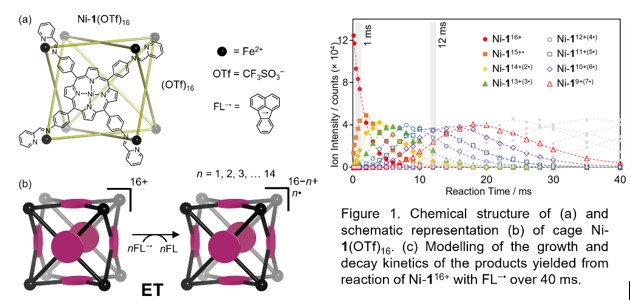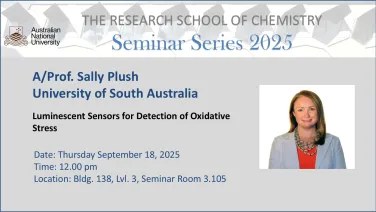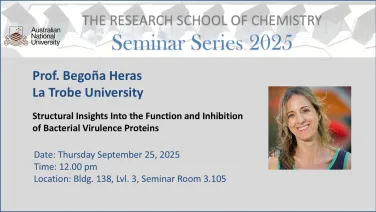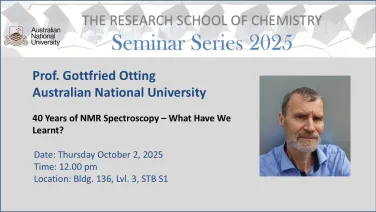RSC School Seminar - Dr Kathleen Mullen (Queensland University of Technology)
Title: Synthesis and reactivity of gas phase metallosupramolecular complexes
Speakers
Event series
Content navigation
Description

Synthesis and reactivity of gas phase metallosupramolecular complexes
Abstract
Interlocked architectures and metallosupramolcular capsules or cages have proven to be attractive synthetic targets given their potential application in areas such as molecular sensing, enantioselective catalysis, drug delivery and in the development of stimuli responsive materials.[1] As structural complexity increases, new techniques are required for the synthesis and characterisation of more challenging topologically diverse species. Compared to the well-developed use of crystallography or NMR spectroscopy to this end, mass spectrometry is typically used only to determine the molecular weight and stoichiometry of supramolecular architectures.[2][3]
Recently, we have demonstrated that techniques such as gas-phase electrochemical reduction or high-resolution ion mobility mass spectrometry can give us far more useful information about the size, shape and even reactivity of individual coordination cages within the gas phase. In this talk I will highlight how gas-phase electrochemical reduction can be deployed as a dual-function tool to synthesise and probe the reactivity of complexes beyond their conventional oxidation state(s). Such an approach is advantageous over solution-based methods due to the absence of competing reagents or solvents that would otherwise hinder the study of the intrinsic properties of the substrate.[4] We will then explore how high-resolution ion mobility mass spectrometry can be used to characterise complex mixtures of metallo-supramolecular assembles. It is envisioned that these new methods will encourage chemists to embrace coordination cages containing a broader range of metal ions and ligands, significantly expanding the scope of accessible supramolecular architectures.

References
- A. Brock, H. Al-Fayaad, M. Pfrunder and J. Clegg, "Functional Supramolecular Materials: From Surfaces to MOFs" The Royal Society of Chemistry, 325, (2017)
- P. R. Ashton, C. L. Brown, J. R. Chapman, R. T. Gallagher and J. F. Stoddart, "Characterisation of molecular and supramolecular systems by electrospray mass spectrometry" Tetrahedron Lett., 33, 7771, (1992).
- 3. C. A. Schalley, "Molecular recognition and supramolecular chemistry in the gas phase" Mass Spectrom. Rev., 20, 253, (2001).
- 4. M.C. Pfrunder et.al., "Exploring the Gas-Phase Formation and Chemical Reactivity of Highly Reduced M8L6 Coordination Cages" Angew. Chem. Int. Ed. 2022, 61, doi/10.1002/anie.202212710.
Location
STB S2, Building 136



